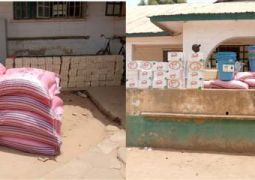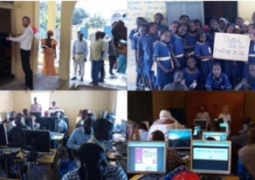Stakeholders across the country, including regional governor gathered yesterday at the Paradise Suites Hotel for a day-long inception workshop on strengthening of The Gambia climate change early warning system project.
Organized by the department of Water Resources, the forum discussed, among others, the project, which seeks to enhance adaptive capacity and reduce vulnerability to climate change through a strengthened early warning and information-sharing mechanism for a better informed decision making by the government and affected population.
In a statement read by Fatima Sosseh-Jallow, deputy permanent secretary, on behalf of the minister of Fisheries, Water Resources and National Assembly Matters, Lamin Kaba Bajo said climate is the most precious resource that humankind is blessed with as it ensures the proper functioning of all the life support systems on our planet.
According to him, due to The Gambia’s high dependence on the exploitation of non-mineral natural resources and, by extension, our status of development, the climate is the main driver of our socio-economic well-being and development.
“However, like any resource, the extremes, that is, too much or too little, in its distribution over space and time, pose a significant threat to our well-being,” he said, noting that the climate resource is such that humankind does not possess the capability to significantly change its outcome.
He added that climate change is currently the greatest threat that humankind is faced with in the modern age; it is a global concern, and both rich and poor countries alike are affected by its negative impact.
Fisheries minister Bajo further underscored that in spite of our well meaning efforts to achieve our National Vision 2020, alleviate poverty in our midst and achieve the MDGs, climate change stands to undo our past achievements and undermine our future, adding that the state of our road infrastructure is a clear example.
Pa Ousman Jarju, Director of Water Resources, in a statement, said The Gambia is currently living with the negative impacts of climate change events such as irregular rainfall patterns, and living in apprehension of predicted ones such as sea-level rise.
He revealed that the main problem facing the country today in the context of climate change is a high vulnerability to climate change and variability exacerbated by a low capacity to address and adapt to the phenomenon.
“This low capacity is evident at all levels from the rural households through urban communities and the private sector that is currently benefiting from a robust tourist industry, to local and national government,” he said.




